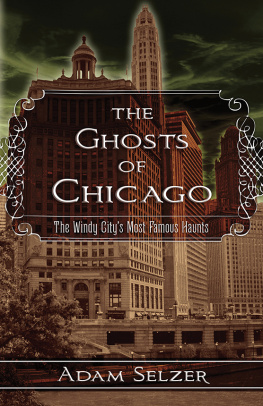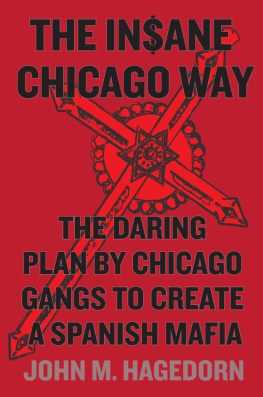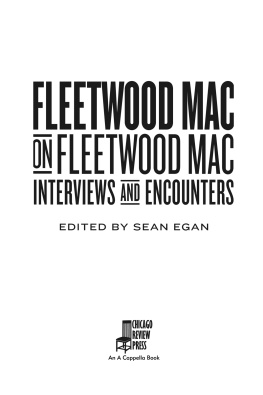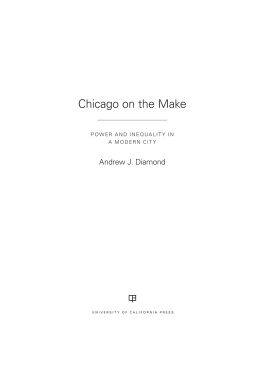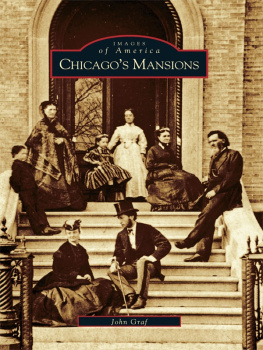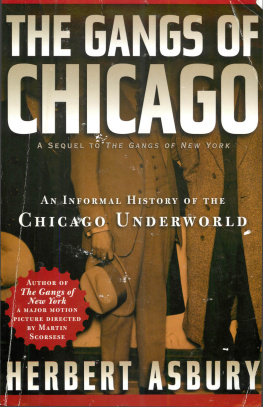AN ALLEY IN CHICAGO
COMMEMORATIVE EDITION
AN ALLEY IN CHICAGO
THE MINISTRY OF A CITY PRIEST
MARGERY FRISBIE
with a new introduction and conclusion by
ROBERT A. LUDWIG

As an apostolate of the Priests of the Sacred Heart, a Catholic religious congregation, the mission of Sheed & Ward is to publish books of contemporary impact and enduring merit in Catholic Christian thought and action. The books published, however, reflect the opinions of their authors and are not meant to represent the official position of the Priests of the Sacred Heart.
2002
Sheed & Ward
7373 South Lovers Lane Road
Franklin, Wisconsin 53132
1-800-266-5564
Copyright 2002 by Margery Frisbie
Commemorative Edition 2002
All rights reserved. No part of this book may be reproduced, stored in a retrieval system, or transmitted, in any form or by any meanselectronic, mechanical, photocopying, recording, or otherwisewithout the written permission of Sheed & Ward.
Printed in the United States of America
Cover and interior design by Madonna Gauding
Originally published 1991 by Margery Frisbie
Sheed & Ward
Franklin, WI 53132
Library of Congress Cataloging-in-Publication Data
Frisbie, Margery.
An alley in Chicago : the life and legacy of Monsignor John Egan Margery Frisbie.Commemorative ed. / with a new introduction and conclusion by Robert A. Ludwig.
p.cm.
Includes index.
ISBN 978-1-58051-121-6
1. Egan, John J. 2. Catholic ChurchUnited StatesClergyBiography. I. Title.
NX4705.E17 F75 2002
282.092dc20
2002017916
1 2 3 4 5 * 04 03 02 01
For Richard
CONTENTS
by Robert A. Ludwig
by Theodore Hesburgh
by Martin E. Marty
by Robert A. Ludwig
PREFACE TO THIS MEMORIAL EDITION
Robert A. Ludwig
Margery Frisbie wrote the original edition of An Alley In Chicago: The Ministry of a City Priest (Sheed & Ward, 1991) more than a decade ago. Because of his continual health problems and his advancing age, it appeared then that this biography of Monsignor John Egan was nearly complete; he had made his contribution to the Church, to Chicago, the nation; the end was nearing. Its clear now, from the vantage point of a decade later, that nothing could be further from the truth: some of his most important work was still to come. Hence, this memorial edition, which adds a final chapter to Frisbies original manuscripta chapter focused on his life and work in the years since the original edition came out.
This volume is a project jointly sponsored by DePaul University and Sheed & Ward Book Publishers, negotiated by Jeremy Langford, co-publisher and editor-in-chief of Sheed & Ward, and Richard Meister, executive vice president for academic affairs at DePaul. Aware that the first edition had been out of print for several years, both DePaul and Sheed & Ward wanted to provide the public with the only biography (to date) of Monsignor John Egan, who passed into eternity on May 19, 2001. Living into his eighty-fifth year, Jack defied all probabilities and expectations. Not only should Margery Frisbies original biography, long out of print, be reprintedbut it should be brought up to date. There needed to be a public record of Jack Egans final years, years in which he headquartered at DePaul as he continued his tireless work for justice and human rights.
The memorials, tributes, and eulogies that appeared on the occasion of Monsignor Egans death were abundanta richly diverse chorus of voices singing the praises of this little man. Francis Cardinal George, archbishop of Chicago, said simply a great priest has gone to God. Egans friend of sixty-five years and seminary classmate, Chicago Auxiliary Bishop Timothy Lyne, pointed to Father Egans prophetic stance within the Church: He disagreed with many of the Churchs policies, but he had a great loyalty to the Church. All families disagree on certain things, but he was always a member of the family.
Chicago writer Tim Unsworth recalled a moment shortly after Archbishop Georges installation in 1997. The new archbishop hosted a reception for the archdiocesan clergy. When the reception ended, a staff
The obituary in the New York Times (May 22, 2001) described Jack Egan as an influential figure for over four decades in both the religious life and neighborhood politics of Chicago, but also as one whose work on issues of civil rights, changing neighborhoods and poverty shaped church efforts in those areas nationally. The Times obit mentions that many of those he influenced called him a surrogate bishop for Catholics engaged in social and political struggles. The Chicago Tribune (May 20, 2001) referred to him as the conscience of the city. His friend and mentor, Saul Alinsky, had cautioned him years earlier: Make up your mind, Jack, whether you want to be a priest or a bishop. All other decisions will flow from that one. The Chicago Sun-Times (May 20, 2001) wrote that instead of becoming a bishop, he took the path that made him the peoples priest.
Father John Minogue, C.M., president of DePaul University, where Jack worked the last fourteen years of his life, praised Egan for his commitment to the ideals of Vincent de Paul. I had great affection for Jack, not only for his kind words and good works but also because he was always willing to challenge whether we could make things better for other people. He was a noted champion for social justice and civil rights. At DePaul, he was an outstanding catalyst for furthering the universitys community service mission. Throughout his long and fruitful priesthood, his primary concern was the Christian ideal of love for othersparticularly the poor and disadvantaged people. His legacy is a tremendous love of the common man and the great work he did to make the common man get a just wage. He really had a way of challenging people on very serious moral issues without alienating them, so that change could actually happen.
Egan had come to DePaul in 1987, when then-president Father John Richardson invited him to serve as assistant to the president for community affairs, a position he held until his death in May 2001. Richardson remembered him as one of my most valued friends and confidants. Even after Richardson had left DePaul and moved to Africa to teach in a seminary there with his fellow Vincentians, he carried on regular correspondence with Egan and looked forward to Jacks weekly packages of newspaper clippings keeping him informed of life in Chicago. Egan had come directly from his hospital bed to DePaul to speak at Richardsons fiftieth jubilee of ordination Mass in 1999something that the former DePaul president could never forget.
Richard M. Daley, mayor of Chicago, said the city had lost one of its most courageous moral and spiritual leaders who never wavered in his commitment to the poor and underprivileged and to equal rights for all. Jack Egan didnt just talk about social change; he worked hard for social change his entire life, and he helped make Chicago a better city. Remarkable words from the son of a previous mayor, Richard J. Daley, with whom Jack Egan had struggled on many issues, challenging city halls stance on urban renewal projects and public housing, questioning the citys commitment to serving its African-American population and the needs of poor and lower-income people. The younger Daley had come to esteem Egans long-term commitment and saw him, as did so many others, as a faithful priest whose commitment to God found expression in concrete efforts to help people by changing systems and structures that infringed on their human dignity.
Next page

